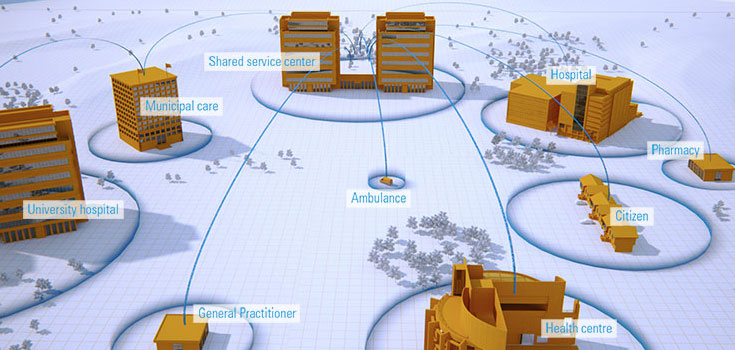Healthcare logistics involves managing the flow of pharmaceutical and medical resources needed to support health care providers such as doctors, nurses, and dentists. The primary focus of health care logistics is to provide a reliable mode of transfer between the point of origin and the point of consumption. For example, needles and breathing machines need to be delivered to health care clinics in a timely fashion to guarantee the proper treatment of patients. The management of resources remains a central focus in health care logistics. Pivotal aspects of health care logistics include the integration of information, production, packaging, inventory control, transportation, storage, security, and material handling. Physical items like food and medical equipment need to be distributed in order to run an efficient hospital. Because of this, health care logistics has become an increasingly popular field of study.
The primary customers of health care logistics are doctors, nurses, dentists, and veterinarians. Because these customers are responsible for the health and well being of their patients, health care logistics is especially important. Without medical logistics, health care providers will have no way of obtaining the resources needed to effectively treat their patients. Effective health care logistics involves the minimal use of resources in the process of importing and exporting medical supplies. Next to staff costs, medical supplies are the most expensive aspect of hospital administration.
Many hospitals take advantage of emergency logistics in order to effectively handle time-critical issues. Accounting for potential production delays is an important part of healthcare administration. Patients facing life-threatening ailments need immediate attention and simply cannot wait for their medical supplies to be delivered. Healthcare administrators enlist emergency logistics from a specialist provider to guarantee the safe delivery of medical supplies in a timely fashion.
Many academic institutions offer training in logistics. Both undergraduate and postgraduate programs are available. Programs focus on training future logisticians in order to meet the demands of the growing field. Instead of working in a pure logistics company like a shipping line, airport, or freight carrier, logisticians can work in a dedicated logistics department. Many hospitals have dedicated logistics departments to ensure the efficient delivery of medical supplies. Organizations such as the International Association of Public Health Logisticians, or IAPHL, is a network of professionals that promote the growth and development of aspiring logisticians and supply chain workers working in public health. The organization prioritizes developing countries that lack the infrastructure for an efficient health care logistics system. Members in the organization often network and exchange ideas, thus improving their professional skills and enhancing their portfolio. Logistics is a very broad field and the United States Bureau of Labor Statistics predicts that job outlook within the profession is expected to increase in the coming decade. The Affordable Care Act passed by the Obama Administration ensures that a majority of Americans have access to health care. Because of this, the demand for jobs in the health care sector will increase. Hospitals will need to take care of more patients in the future. An increase in patients only means that health care logistics will need to become more efficient. Students all over the world are taking advantage of this fact and studying health care logistics in college.





This is great. Where should I go for more information on this topic?
Where do I look for this?